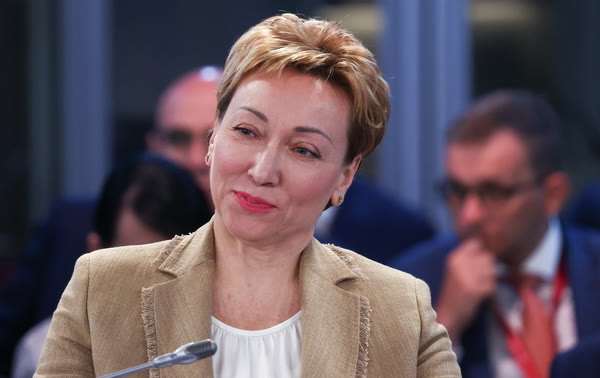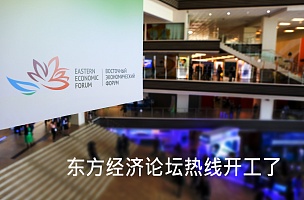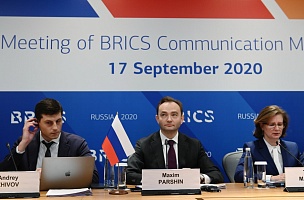Key conclusions
Russia’s financial system survives the sanctions
“Russia’s financial system, despite all the difficulties, certain breakdowns in settlements and payments, is operating sustainably and we are looking to the future with sufficient confidence. Yet it should be noted that, alongside the sanction decisions and gradual blocking of SWIFT transactions, with the exception of a number of banks, 13 banks have already been switched off. There has also been a powerful attack on the Russian financial system. <…> Even so, our systems, cyber-systems, withstood the attacks and are continuing stable operations,” Anatoly Aksakov, Chairman of the Committee of the State Duma of the Federal Assembly of the Russian Federation on Financial Markets.
“We see that, even though our payment system and the Mir payment system, SPFS and FPS were created and launched as an alternative and competitive payment systems to the international ones, as soon as the events of 24 February occurred, within five days they took on the load connected with the international payment systems withdrawing. And, frankly speaking, if we hadn’t been prepared in advance to process all the operations in the country, you can understand what the situation would have been. And what were our, let’s say, unfriendly colleagues counting on? They were counting, of course, on everything beginning with collapse of the financial system, followed, like an avalanche, by this affecting people and having disastrous consequences. First of all, not only did this not happen but they unexpectedly realized that we can even rapidly grow the infrastructure,” Olga Skorobogatova, First Deputy Governor, Central Bank of the Russian Federation.
Russia needs to re-equip technically its financial institutions and improve the platforms where clients will resolve their problems
“A new infrastructure is needed not so much for the banking market but for the financial market as a whole, that is, for investments, for investments by individuals and for investments by small businesses, which had also started using the products. It is clear here that a new, modified infrastructure is needed on the investment market. At the same time, it seems to me, the Central Bank could demonstrate initiative or it would be easier for banks together to build, by combining their efforts, a mobile app on a new architecture than for us all separately to try to build our own individual system,” Mikhail Zadornov, President – Chairman of the Management Board, Otkritie FC Bank.
“For us, today, we see a very important direction – creation of a convenient services for interaction between the public and the state in their day-to-day payment functions. This and the targeted direct payments themselves, as we understand, the purpose is, of course, the digital rouble, smart contracts, but so far, today, a system of electronic certificates has been implemented by means of integration between banks and state structures of the Treasury, the Social Insurance Fund, the Ministry of Labour, the Bank of Russia and the NPCS. It is now being developed and will soon receive quite interesting serious development, allowing it also to help banks support a number of their current product lines and their collaboration on meeting the public’s demand for given services. This is our loyalty platform,” Vladimir Komlev, Chairman of the Management Board, Chief Executive Officer, National Payment Card System.
PROBLEMS
Shortage of Russian software and digital technology
“In order to ensure the financial system’s security, active work needs to be carried out here. The Russian President has set relevant tasks involving transferring to Russian software, and stage-by-stage preparation, development and introduction of Russian so-called ‘cyber-hardware’,” Anatoly Aksakov, Chairman of the Committee of the State Duma of the Federal Assembly of the Russian Federation on Financial Markets.
“The subject was touched on that, considering the IT solutions available on the market, all of us – regulators and banks and IT companies, have come up against the fact that, despite our good position when it comes to software, in general created by Russian companies and developers, out situation is not so good with respect to systemic software and hardware. Something needs to be done about this – and fast. We have had preliminary talks with some market players and they all gave their support. We have an association of financial digital technologies and we would like, together with the Ministry for Digitalization, financial institutions with IT companies, first of all to make proper repositories for all existing and operating solutions on the Russian market. Because, ridiculously, banks come to us asking where to find IT solutions. IT companies go to the Ministry for Digitalization asking where to find clients. We believe that, in the fourth quarter of this year, we will set up a repository [storage facility – Ed.] it will take the following shape: there will be tested, proven IT solutions for all the functions of banks and financial agents. But, when it comes to systemic software and hardware, it is the manufacturers that should be approached to launch all the requisite production,” Olga Skorobogatova, First Deputy Governor, Central Bank of the Russian Federation.
Need to optimize labour expenditures and adjust the regulatory and legal framework
“There are two subjects – 2021 compared to 2020 – the number of mandatory 115-FZ notifications quadrupled; with respect to certain categories, banks have to notify Rosfinmonitoring of operations from one thousand roubles, this involving, I believe, absolutely pointless work. Time after time, we have proposed and the Central Bank has apparently agreed to raise the figure to a reasonable sum, at least to 10 thousand roubles. The second subject is the law on archiving. Storage is for 3–5 years. A whole series of objectively outdated rules and regulations should be changed, this not only providing an opportunity for technological advance, but also allowing themselves to avoid senseless work, and there will be substantial overall cost savings,” Mikhail Zadornov, President – Chairman of the Management Board, Otkritie FC Bank.
“I cannot but agree that we really should update law 115-FZ. It has played its part but everything changes and we are working with Rosfinmonitoring on this. Some things can be changed to no one’s detriment, the limit reviewed, for instance. There are other things, let’s say rules that really need modernizing to preclude an excessive load on financial institutions. Also archiving. As the Central Bank we have trying for five years to advance this law; we are not initiators but rather inspirers. We would like to see it passed this year. Keeping paper documents for 3–5 years is impossible, like the Stone Age,” Olga Skorobogatova, First Deputy Governor, Central Bank of the Russian Federation.
SOLUTIONS
Synergy of financial institutions and the state
“In my view, an important development factor today is the growing synergy with the state in terms of digital services. There is objectively a considerable gap between banking services in Russia and those we see in Western Europe, the USA, etc. The state is now going in this direction, too. The state is providing a large number of digital state services and there are many diverse opportunities. And at the juncture between private business and the state, we can develop many services convenient for the public,” Kirill Tsarev, First Deputy Chairman of the Board, Sberbank.
“We thoroughly discussed today creating a joint infrastructure, with the Bank of Russia playing the main role, of course, as it has well justified itself. <…> This, it seems to me, would guarantee that each specific bank would undoubtedly supplement its competitive component, create this framework for renewed life and the opportunity to offer the client quality services, but according to a somewhat different paradigm,” Petr Fradkov, Chairman, Promsvyazbank.
“It is important that we are all geared, in the good sense of the word, to making it convenient, comfortable, reliable and preferably cheaper for the public and businesses. The battle for clients, also in a good sense, is rising to a new level. When, on the one hand, we can truly, as synergy between state services and commercial ones, really supplement one another when it comes to services quality and opportunities. A unified mobile app – it was stated categorially a couple of years ago that this should not even be considered as the unique perception of each participant’s mobile app would disappear. I think we are now reaching a different level of understanding. It is not a question of the mobile app but of the service provided by each participant. Maybe some unified mobile app should also be created,” Olga Skorobogatova, First Deputy Governor, Central Bank of the Russian Federation.
Introduction of Russian payment systems in friendly countries
“Over the eight years since its inception, the NPCS has created a large number of IT-platforms for the market: the opportunities to make business models more customary for the public, for people, with respect to the services on which these business products are based. I must note separately ‘MIR International’, a platform that not only enables Mir cards to be accepted abroad but also create a unified, seamless, retail payment system with the EAEU states. With a Mir card, you can today travel to Belarus and Belarussians can use their Belkart cards in Russia; the Armenian Arka system accepts the Mir card anywhere in Armenia. The same applies in Kyrgyzia and almost the same applies in Kazakhstan. We are working on that, too,” Vladimir Komlev, Chairman of the Management Board, Chief Executive Officer, National Payment Card System.
“Speaking of the systems that, thanks to the Central Bank, were activated more vigorously here during this period: the ‘Fast Payments System’ covering 211 banks; 83 banks use the FPS-Pay system. And the system itself has shown that it is very efficient, more and more persons are joining it and working with it. Recently, the Central Bank has taken decisions allowing legal entities to join this system, too, primarily small businesses, and it is obvious that this direction will develop further here. Over 125.5 million Mir cards have been issued. And recently, considering that the international payment systems have decided to withdraw from the Russian market, the share of this payment system will constantly grow. In just a few months it has increased, by 3% over the last 2–3 months. It was32% of the market but is now over 35%. The main thing is that this system meets all international standards operating on this market. We are optimistic that it will continue to compete successfully, not only in our country but in others as well. It is currently accepted in ten countries, among which I would note Turkey, Vietnam and, obviously, Arab countries,” Anatoly Aksakov, Chairman of the Committee of the State Duma of the Federal Assembly of the Russian Federation on Financial Markets.
For more detail, see the roscongress.org Information and Analytical System.






